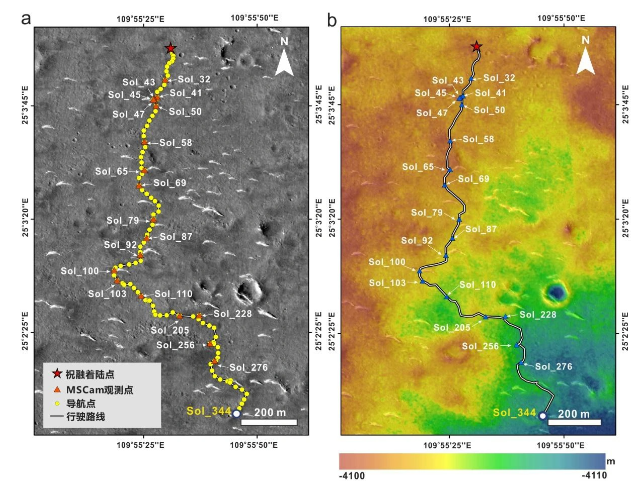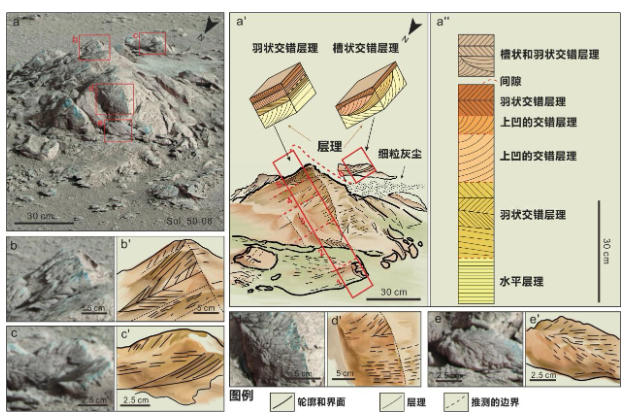
ITBEAR Technology Information learned that the climate characteristics of Mars are very different from those of the Earth. Its temperature is low, dry, and it lacks running water and signs of life. However, a recent study by an international research team led by Professor Xiao Long from the School of Earth Sciences of China University of Geosciences (Wuhan) found that an ocean once existed in the northern part of Mars. This breakthrough discovery was made through a comprehensive analysis of data from the Multispectral Camera (MSCam) returned by China's Mars probe "Zhurong".

The research team discovered petrological evidence of oceanic sedimentary rocks on the surface of Mars. This discovery provides strong support for previous disputes about the existence of ancient Martian oceans. Professor Xiao Long's team found these evidence on the southern edge of Utopia Planitia in the northern plains of Mars, an area located in the Boreal Wasteland Formation near the ancient coastline. In 2021, China's Mars probe "Zhurong" successfully landed and conducted inspections. The completion of this mission revealed this discovery.

#The "Zhurong" Mars rover conducted detailed observations of the strata of the Northern Wasteland Formation during its patrol. Using panoramic images and other data captured by the Navigation and Topography Camera (MSCam), the team explored the unique structure of outcrops and surface rocks. Bedding structures are displayed in these exposed rocks, and their characteristics are obviously different from the structures formed by volcanic rocks and weathered sediments commonly found on the surface of Mars. These bedding structures show bidirectional flow characteristics consistent with tidal currents in Earth's littoral shallow marine environments.
After observing the surface structure of the stones in the inspection area of the "Zhurong" Mars rover, the research team named this area the Zhurong segment. They found that the rocks in the Zhurong Member usually have locally lenticular cross-bedding structures, as well as a small amount of lenticular flattened bedding and sedimentary structures of small water channels. These structures indicate the existence of a bidirectional paleoflow environment.

The researchers pointed out that the sequence thickness and particle size on the surface of Mars vary greatly depending on the direction, indicating that the intensity of ancient water flow was different in different directions.
The above is the detailed content of Zhurong reveals new discoveries about the existence of an ancient ocean in northern Mars. For more information, please follow other related articles on the PHP Chinese website!




